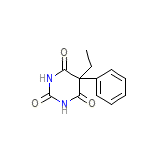Etilfen




Etilfen Brand names, Etilfen Analogs
- Adonal
- Aephenal
- Agrypnal
- Amylofene
- Aphenylbarbit
- Aphenyletten
- Barbenyl
- Barbinal
- Barbiphen
- Barbiphenyl
- Barbipil
- Barbita
- Barbivis
- Barbonal
- Barbophen
- Bardorm
- Bartol
- Bialminal
- Blu-Phen
- Cabronal
- Calmetten
- Calminal
- Cardenal
- Chinoin
- Codibarbita
- Coronaletta
- Cratecil
- Damoral
- Dezibarbitur
- Dormina
- Dormiral
- Dormital
- Doscalun
- Duneryl
- Ensobarb
- Ensodorm
- Epanal
- Epidorm
- Epilol
- Episedal
- Epsylone
- Eskabarb
- Etilfen
- Euneryl
- Fenbital
- Fenemal
- Fenobarbital
- Fenosed
- Fenylettae
- Gardenal
- Gardepanyl
- Glysoletten
- Haplopan
- Haplos
- Helional
- Hennoletten
- Henotal
- Hypnaletten
- Hypnette
- Hypno-Tablinetten
- Hypnogen
- Hypnolone
- Hypnoltol
- Hysteps
- Lefebar
- Leonal
- Lephebar
- Lepinal
- Lepinaletten
- Linasen
- Liquital
- Lixophen
- Lubergal
- Lubrokal
- Lumen
- Lumesettes
- Lumesyn
- Luminal
- Lumofridetten
- Luphenil
- Luramin
- Molinal
- Neurobarb
- Nirvonal
- Noptil
- Nova-Pheno
- Nunol
- Parkotal
- Pharmetten
- Phen-Bar
- Phenaemal
- Phenemal
- Phenemalum
- Phenobal
- Phenobarbital
- Phenobarbitol
- Phenobarbituric Acid
- Phenobarbyl
- Phenoluric
- Phenolurio
- Phenomet
- Phenonyl
- Phenoturic
- Phenylethylbarbiturate
- Phenylethylbarbituric Acid
- Phenylethylmalonylurea
- Phenyletten
- Phenyral
- Phob
- Polcominal
- Promptonal
- Seda-Tablinen
- Sedabar
- Sedicat
- Sedizorin
- Sedlyn
- Sedofen
- Sedonal
- Sedonettes
- Sevenal
- Sinoratox
- SK-Phenobarbital
- Solfoton
- Solfoton Talpheno
- Solu-Barb
- Sombutol
- Somnolens
- Somnoletten
- Somnosan
- Somonal
- Spasepilin
- Starifen
- Starilettae
- Stental
- Stental Extentabs
- Talpheno
- Teolaxin
- Teoloxin
- Thenobarbital
- Theoloxin
- Triabarb
- Tridezibarbitur
- Triphenatol
- Versomnal
- Zadoletten
- Zadonal
Etilfen Brand Names Mixture
- No information avaliable
Etilfen Chemical_Formula
C12H12N2O3
Etilfen RX_link
No information avaliable
Etilfen fda sheet
Etilfen msds (material safety sheet)
Etilfen Synthesis Reference
Hoerlein, U.S. Pat. 1,025,872 (1912)
Etilfen Molecular Weight
232.235 g/mol
Etilfen Melting Point
174 oC
Etilfen H2O Solubility
<0.01 g/100 mL
Etilfen State
Solid
Etilfen LogP
1.777
Etilfen Dosage Forms
Tablet; Elixir
Etilfen Indication
For the treatment of Epilepsy
Etilfen Pharmacology
Phenobarbital, the longest-acting barbiturate, is used for its anticonvulsant and sedative-hypnotic properties in the management of all seizure disorders except absence (petit mal).
Etilfen Absorption
Absorbed in varying degrees following oral, rectal or parenteral administration. The salts are more rapidly absorbed than are the acids. The rate of absorption is increased if the sodium salt is ingested as a dilute solution or taken on an empty stomach
Etilfen side effects and Toxicity
CNS and respiratory depression which may progress to Cheyne-Stokes respiration, areflexia, constriction of the pupils to a slight degree (though in severe poisoning they may wshow paralytic dilation), oliguria, tachycardia, hypotension, lowered body temperature, and coma. Typical shock syndrome (apnea, circulatory collapse, respiratory arrest, and death) may occur.
Etilfen Patient Information
PATIENT INFORMATION
Practitioners should give the following information and instructions to patients receiving barbiturates:
1. The use of phenobarbital carries with it an associated risk of psychological and/or physical dependence.
The patient should be warned against increasing the dose of the drug without consulting a physician.
2. Phenobarbital may impair mental and/or physical abilities required for the performance of potentially
hazardous tasks (e.g., driving, operating machinery, etc.).
3. Alcohol should not be consumed while taking phenobarbital. Concurrent use of phenobarbital with other
CNS depressants (e.g., alcohol, narcotics, tranquilizers, and antihistamines) may result in additional CNS
depressant
Practitioners should give the following information and instructions to patients receiving barbiturates:
1. The use of phenobarbital carries with it an associated risk of psychological and/or physical dependence.
The patient should be warned against increasing the dose of the drug without consulting a physician.
2. Phenobarbital may impair mental and/or physical abilities required for the performance of potentially
hazardous tasks (e.g., driving, operating machinery, etc.).
3. Alcohol should not be consumed while taking phenobarbital. Concurrent use of phenobarbital with other
CNS depressants (e.g., alcohol, narcotics, tranquilizers, and antihistamines) may result in additional CNS
depressant
Etilfen Organisms Affected
Humans and other mammals














